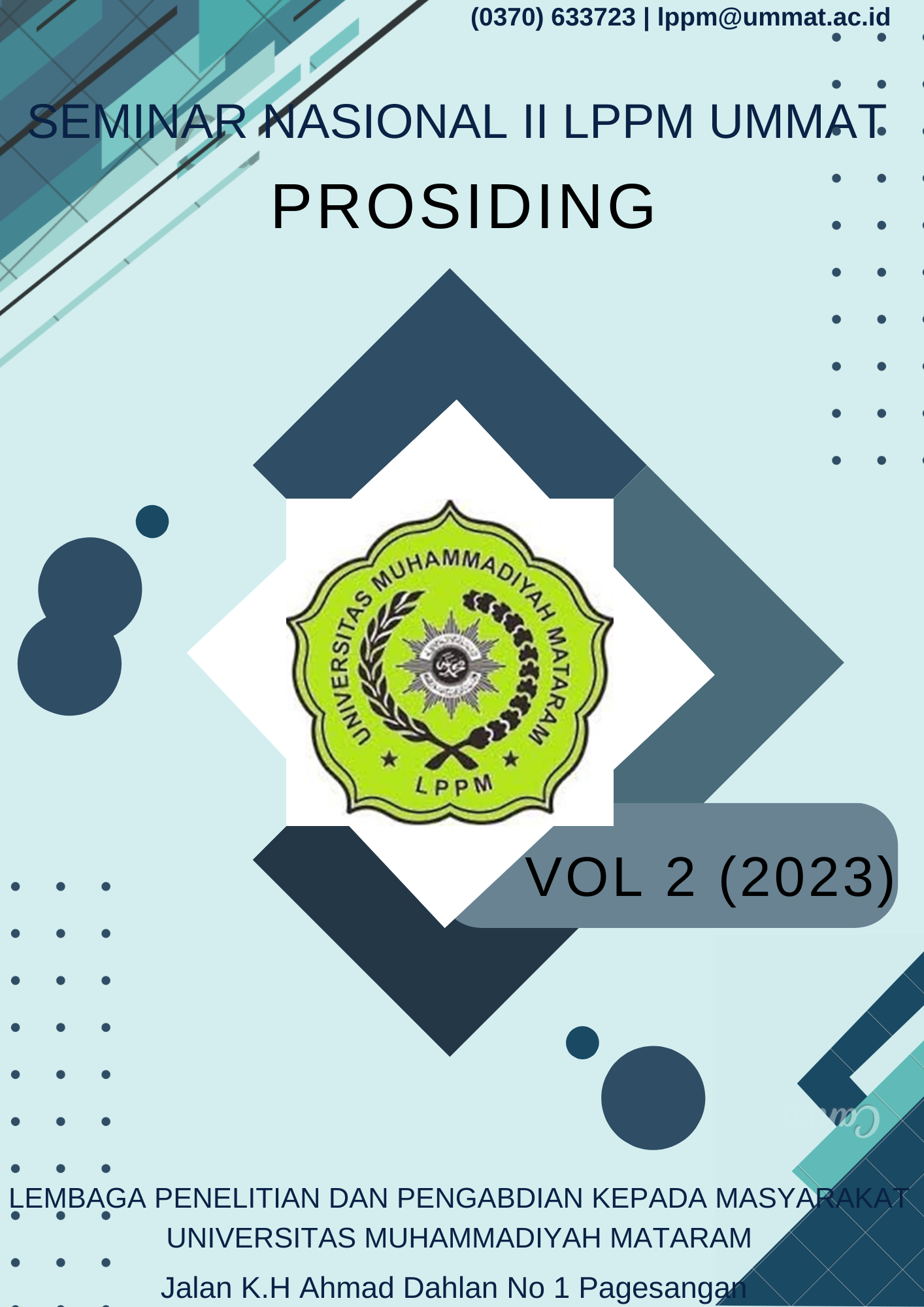Kepemimpinan Transformasional dan Kualitas Kehidupan Kerja Karyawan: Model Mediasi Komitmen untuk Berubah
Keywords:
kepemimpinan transformasional, komitmen untuk berubah, kualitas kehidupan kerja karyawanAbstract
Pada tahun 2019 kondisi global dihadapkan dengan pandemi Coronavirus Disease 19(Covid-19) yang mengakibatkan segala aspek kehidupan termasuk pada kegiatan bisnis perusahaan mengalami perubahan. Keberlangsungan hidup organisasi dapat terganggu karena kecelakaan industri, krisis kesehatan masyarakat, bencana alam, dan krisis lainnya. Masyarakat berjuang untuk melewati pandemi selama beberapa tahun belakangan dan seiring berjalanya waktu dapat melaluinya. Penyesuaian kembali setelah pandemi membutuhkan berbagai usaha termasuk pada organisasi. Demi bertahan pada era yang penuh perubahan dan tantangan, gaya kepemimpinan transformasional sering kali dianggap sebagai pendorong yang kuat bagi suatu organisasi. Kepemimpinan transformasional diperlukan untuk diteliti lebih lanjut agar dapat mengikuti teknologi perusahaan yang terus berkembang. Pemimpin transformasional berusaha memenuhi kebutuhan yang lebih tinggi dan melibatkan potensi penuh dari pengikut. Guna menciptakan keterlibatan penuh dari karyawan perlu untuk perusahaan memperhatikan kualitas kehidupan kerja karyawan. Kualitas kehidupan kerja adalah proses organisasi memperkenalkan dan menerapkan mekanisme yang membuat karyawan dapat berpartisipasi aktif dalam keputusan organisasi guna merancang kehidupan kerja mereka. Pada penelitian ini terdapat variabel mediasi yaitu komitmen untuk berubah.References
Akar, H., & Ustuner, M. (n.d.). The Relationships between Perceptions of Teachers’ Transformational Leadership, Organizational Justice, Organizational Support and Quality of Work Life. International Journal of Research in Education and Science (IJRES), 5(1), 309–322. www.ijres.net
Arefin, M. S., Alam, M. S., Islam, N., & Molasy, M. (2020). Organizational politics and work-family conflict: the hospitality industry in Bangladesh. South Asian Journal of Business Studies, 9(3), 357–372. https://doi.org/10.1108/SAJBS-07-2019-0135
Bass, B. M. (1993). TRANSFORMATIONAL LEADERSHIP AND ORGANIZATIONAL CULTURE. Avolio, Bruce J.
Bommer, W. H., Rich, G. A., & Rubin, R. S. (2005). Changing attitudes about change: Longitudinal effects of transformational leader behavior on employee cynicism about organizational change. Journal of Organizational Behavior, 26(7), 733–753. https://doi.org/10.1002/job.342
Braun, S., Peus, C., Weisweiler, S., & Frey, D. (2013). Transformational leadership, job satisfaction, and team performance: A multilevel mediation model of trust. Leadership Quarterly, 24(1), 270–283. https://doi.org/10.1016/j.leaqua.2012.11.006
Burtson, P. L., & Stichler, J. F. (2010). Nursing work environment and nurse caring: Relationship among motivational factors. Journal of Advanced Nursing, 66(8), 1819–1831. https://doi.org/10.1111/j.1365-2648.2010.05336.x
Dust, S. B., Resick, C. J., & Mawritz, M. B. (2014). Transformational leadership, psychological empowerment, and the moderating role of mechanistic-organic contexts. Journal of Organizational Behavior, 35(3), 413–433. https://doi.org/10.1002/job.1904
Eom, M., Gudigantala, N., & Kim, Y. J. (2019). Investigating the process of developing and retaining competent IT personnel: The role of IT leadership. Asia Pacific Journal of Information Systems, 29(1), 83–116. https://doi.org/10.14329/apjis.2019.29.1.83
Gordon, S., Tang, C. H. (Hugo), Day, J., & Adler, H. (2019). Supervisor support and turnover in hotels: Does subjective well-being mediate the relationship? International Journal of Contemporary Hospitality Management, 31(1), 496–512. https://doi.org/10.1108/IJCHM-10-2016-0565
Herold, D. M., Fedor, D. B., Caldwell, S., & Liu, Y. (2008). The Effects of Transformational and Change Leadership on Employees’ Commitment to a Change: A Multilevel Study. Journal of Applied Psychology, 93(2), 346–357. https://doi.org/10.1037/0021-9010.93.2.346
Herscovitch, L., & Meyer, J. P. (2002). Commitment to organizational change: Extension of a three-component model. Journal of Applied Psychology, 87(3), 474–487. https://doi.org/10.1037/0021-9010.87.3.474
Hill, N. S., Seo, M. G., Kang, J. H., & Taylor, M. S. (2012). Building employee commitment to change across organizational levels: The influence of hierarchical distance and direct managers’ transformational leadership. Organization Science, 23(3), 758–777. https://doi.org/10.1287/orsc.1110.0662
Hobfoll, S. E. (1989). Conservation of Resources A New Attempt at Conceptualizing Stress.
Jacobs, C., Pfaff, H., Lehner, B., Driller, E., Nitzsche, A., Stieler-Lorenz, B., Wasem, J., & Jung, J. (2013). The influence of transformational leadership on employee well-being: Results from a survey of companies in the information and communication technology sector in Germany. Journal of Occupational and Environmental Medicine, 55(7), 772–778. https://doi.org/10.1097/JOM.0b013e3182972ee5
Kara, D., Kim, H. (Lina), Lee, G., & Uysal, M. (2018). The moderating effects of gender and income between leadership and quality of work life (QWL). International Journal of Contemporary Hospitality Management, 30(3), 1419–1435. https://doi.org/10.1108/IJCHM-09-2016-0514
Keller, R. T. (2006). Transformational leadership, initiating structure, and substitutes for leadership: A longitudinal study of research and development project team performance. In Journal of Applied Psychology (Vol. 91, Issue 1, pp. 202–210). https://doi.org/10.1037/0021-9010.91.1.202
Kim, H., Im, J., & Shin, Y. H. (2021). The impact of transformational leadership and commitment to change on restaurant employees’ quality of work life during a crisis. Journal of Hospitality and Tourism Management, 48, 322–330. https://doi.org/10.1016/j.jhtm.2021.07.010
Meyer, J. P., & Allen, N. J. (1991). A THREE-COMPONENT CONCEPTUALIZATION OF ORGANIZATIONAL COMMITMENT.
Molero Jurado, M. D. M., Pérez-Fuentes, M. D. C., Gázquez Linares, J. J. G., Simón Márquez, M. D. M., & Martos MartÃnez, Ã. (2018). Burnout Risk and Protection Factors in Certified Nursing Aides. International Journal of Environmental Research and Public Health, 15(6). https://doi.org/10.3390/ijerph15061116
Walton, R. E. (1975). Improving the quality of work life. Business Review.
Wang, G., Oh, I. S., Courtright, S. H., & Colbert, A. E. (2011). Transformational leadership and performance across criteria and levels: A meta-analytic review of 25 years of research. In Group and Organization Management (Vol. 36, Issue 2, pp. 223–270). https://doi.org/10.1177/1059601111401017
Yang, M. L. (2012). Transformational leadership and Taiwanese public relations practitioners’ job satisfaction and organizational commitment. Social Behavior and Personality, 40(1), 31–46. https://doi.org/10.2224/sbp.2012.40.1.31
Downloads
Published
Issue
Section
License

This work is licensed under a Creative Commons Attribution-ShareAlike 4.0 International License.

